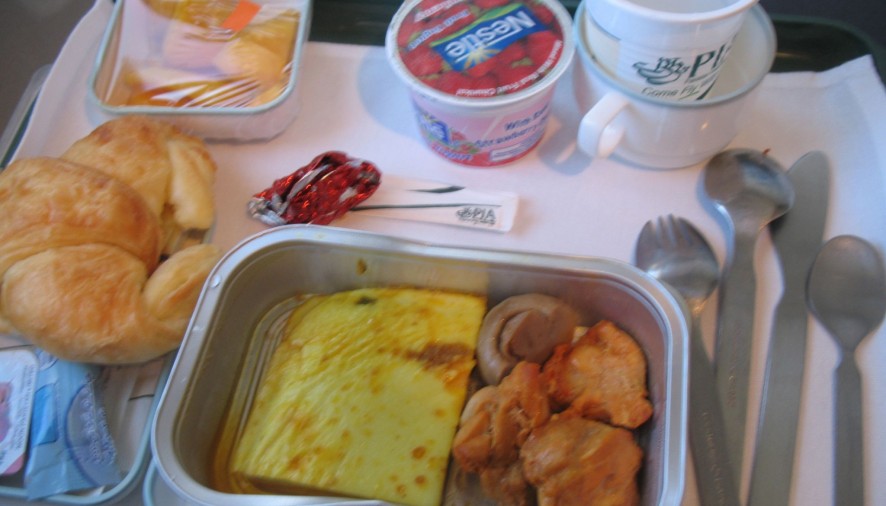If you have been on an airplane before and ate food on board, or heard stories of airplane food from friends and family; a common theme seems to be that people complain that the food served on airplanes is tasteless or bad. The question as to why airplane food tastes flavourless or bland has puzzled people for a while. Researchers of the University of Manchester found out that the noise from the aircraft engines might be to blame.
The research project lead by Andy Woods wondered if there is a link between heavily seasoned food that is given to space explorers by NASA and the food on airplanes. It is a myth that airlines fail to make their food tasty. In fact, in the past several years, airlines have added considerably more spice, salt, sugar and herbs to airplane food than what is commonly used for food consumed when not in the air. Woods et al. acknowledged the fact that NASA and airplane foods are heavily seasoned and hypothesised that the noise level experienced by space explorers and flight passengers might be the cause of why we fail to taste the difference.
The researchers asked 48 undergraduate and postgraduate students at the University of Manchester to taste sweet and salty foods while blindfolded and listening to either to silence or noise similar to airplane noise. Afterwards they were asked to rate the sweetness and saltiness of the foods. Results showed that background noise caused food to taste less sweet and less salty to participants. When asked to judge crunchiness of the foods, the ratings increased with background noise.
Based on their findings, Woods et al. tried to understand why loud background music would cause food to taste bland. Woods told BBC News that it might be a matter of attention. If our attention is drawn to the outside noise, it distracts us from the food and its taste. Similarly, temporarily losing the ability to taste can be attributed to experiencing two conflicting emotions, that of the pleasure of eating and that of stressful aircraft noises.
Woods and his research colleagues are not the only researchers that have looked into the effect of noise on the perception of taste. In 2010, the German airline Lufthansa conducted a similar study, although participants tasted sample meals in a flight simulator that would be able to model the air humidity that is normally measured in-flight. The results from this study confirm the findings made by Woods. More so, Lufthansa concluded that the perception of sweetness and saltiness decreases up to 30 percent with increased background noise. More interestingly though, the findings also suggested that background noise has little effect on the perception of sourness, bitterness and spiciness.
The bottom line is that it seems difficult to make airplane food full of flavour despite all the efforts that airlines put into making their food taste nice. In order to tackle this problem, it would probably be useful to find a way of reducing the noise that comes from aircraft engines.
Image courtesy of Farhan, image hosted on Wikipedia.

